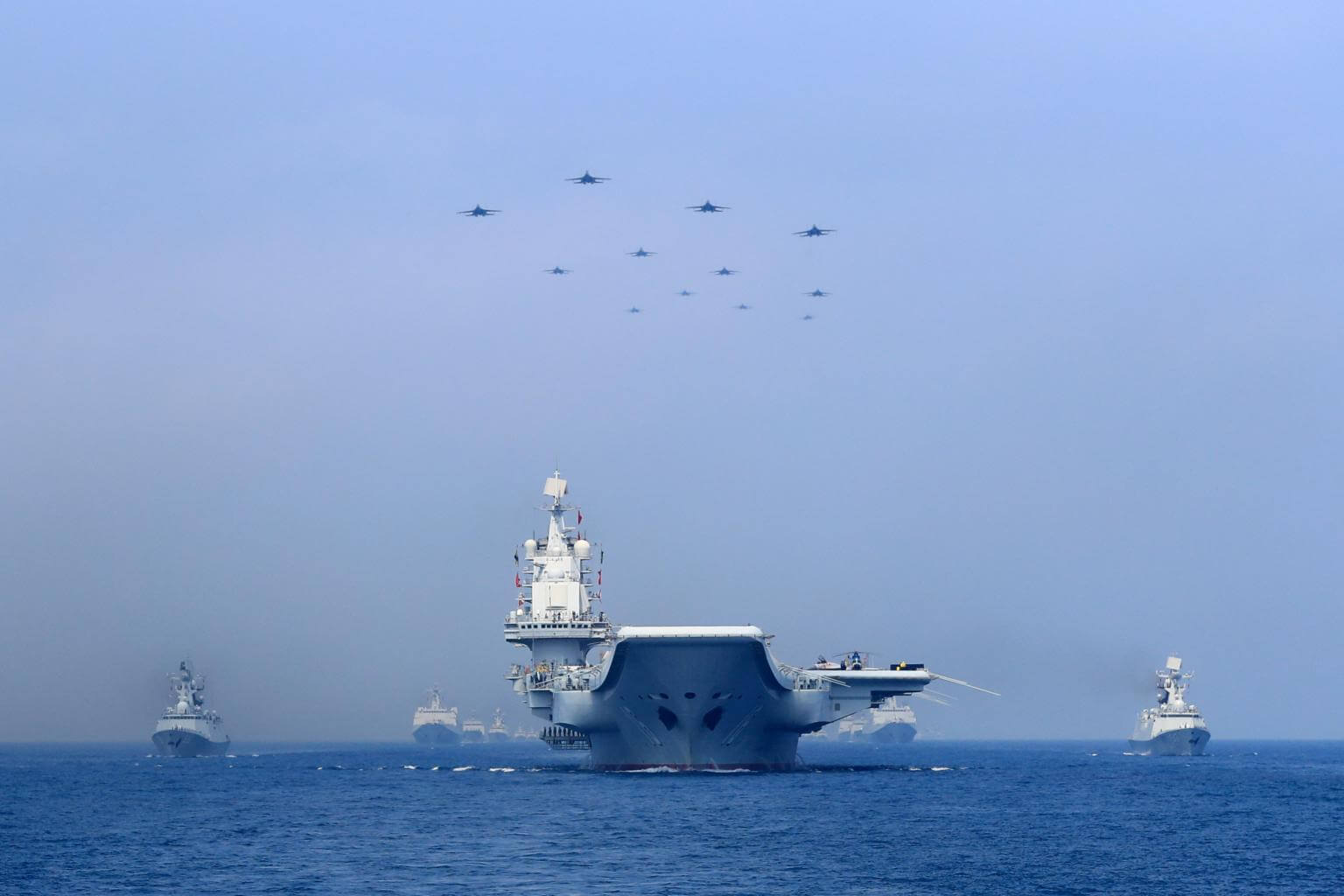Philippines expresses 'serious concern' over Chinese bombers in disputed South China Sea
Sign up now: Get insights on Asia's fast-moving developments

File photo showing warships and fighter jets of Chin's army taking part in a military display in the South China Sea on April 12, 2018.
PHOTO: REUTERS
Follow topic:
MANILA - A spokesman for Philippines President Rodrigo Duterte on Monday (May 21) aired "very serious concern" over reports that China has landed long-range bombers on its islands in the disputed South China Sea.
The foreign ministry also said in a statement it is taking "appropriate", but low-key, diplomatic action "to protect our claims, and will continue to do so in the future".
"We reiterate our commitment to protect every single inch of our territory and areas which we have sovereign rights over," the ministry said.
But it stopped short of condemning China's action "to avoid any drawbacks and challenges".
"While appropriate language, whether expressions of condemnation or concern, over certain developments are clearly conveyed through diplomatic channels, it is not our policy to publicise every action taken by the Philippine government whenever there are reported developments taking place in the... South China Sea," it said.
Mr Duterte has made it a cornerstone of his foreign policy to cultivate friendship with China, despite a favourable ruling Manila received over the South China Sea from an arbitration court in the Hague in 2016.
China's air force said bombers such as the H-6K had landed and taken off from islands and reefs in the South China Sea as part of training exercises last week.
The Washington-based Asia Maritime Transparency Initiative, using Chinese social media posts, identified the location of the exercise as Woody Island, China's largest base in the Paracels that are also claimed by Vietnam and Taiwan.
With its combat radius of about 3,520km, the H-6K would put all of South-East Asia in its range from Woody Island.
Farther south in the Spratly group of islands, China has constructed man-made islands on seven Philippine-claimed reefs and equipped them with runways, hangars, radar and missile stations.
The United States on Saturday (May 19) criticised China's "continued militarisation" of its island outposts, and warned that this could destabilise the region.
The US does not have any territorial claims in the South China Sea but insists on freedom of navigation and a peaceful resolution of disputes without coercion or threat of force.
China claims almost the entire South China Sea, a strategic waterway through which about US$3 trillion (S$4 trillion) worth of sea-borne trade passes every year. Brunei, Malaysia, the Philippines, Taiwan and Vietnam have conflicting claims in the area.
Mr Harry Roque, Mr Duterte's spokesman, told reporters the Philippines would raise "recent developments" in the South China Sea during bilateral talks with China in August.
But he echoed the foreign ministry's preference for a low-key approach. "We don't have to make noise over each and every issue," he said.
He said this was not in deference to China.
He also pointed out that a recent meeting between senior Philippine officials and the commander of US forces in the Pacific showed Manila was not abandoning its ties with Washington.
"I can only surmise that the visit is intended to reassure the US that while we are pursuing an independent foreign policy, we have not abandoned our traditional ally," he said.
The foreign ministry disclosed on Sunday (May 20) that Defence Secretary Delfin Lorenzana, Foreign Affairs Secretary Alan Cayetano and Executive Secretary Salvador Medialdea on Friday (May 18) met Admiral Harry Harris, chief of the US Pacific Command, in Honolulu.
"The Philippine delegation had a very substantive exchange with Admiral Harris on regional challenges, and both sides agreed that the alliance remains consequential to the preservation of regional stability and development," the ministry said, without providing details.
Mr Duterte on Saturday (May 19) again defended his position that confronting China would only lead to a war the Philippines could not win.
"I can send my Marines there. I can send every policeman there. But what will happen? They will all be massacred," he said.
Lawmakers have criticised him for not confronting China in preference for his attempts to win China's friendship.
In Beijing, foreign ministry spokesman Lu Kang told a daily news briefing on Monday other countries should not "read too much" into what he called a routine military patrol.
In Beijing, foreign ministry spokesman Lu Kang told a daily news briefing on Monday other countries should not "read too much" into what he called a routine military patrol.

